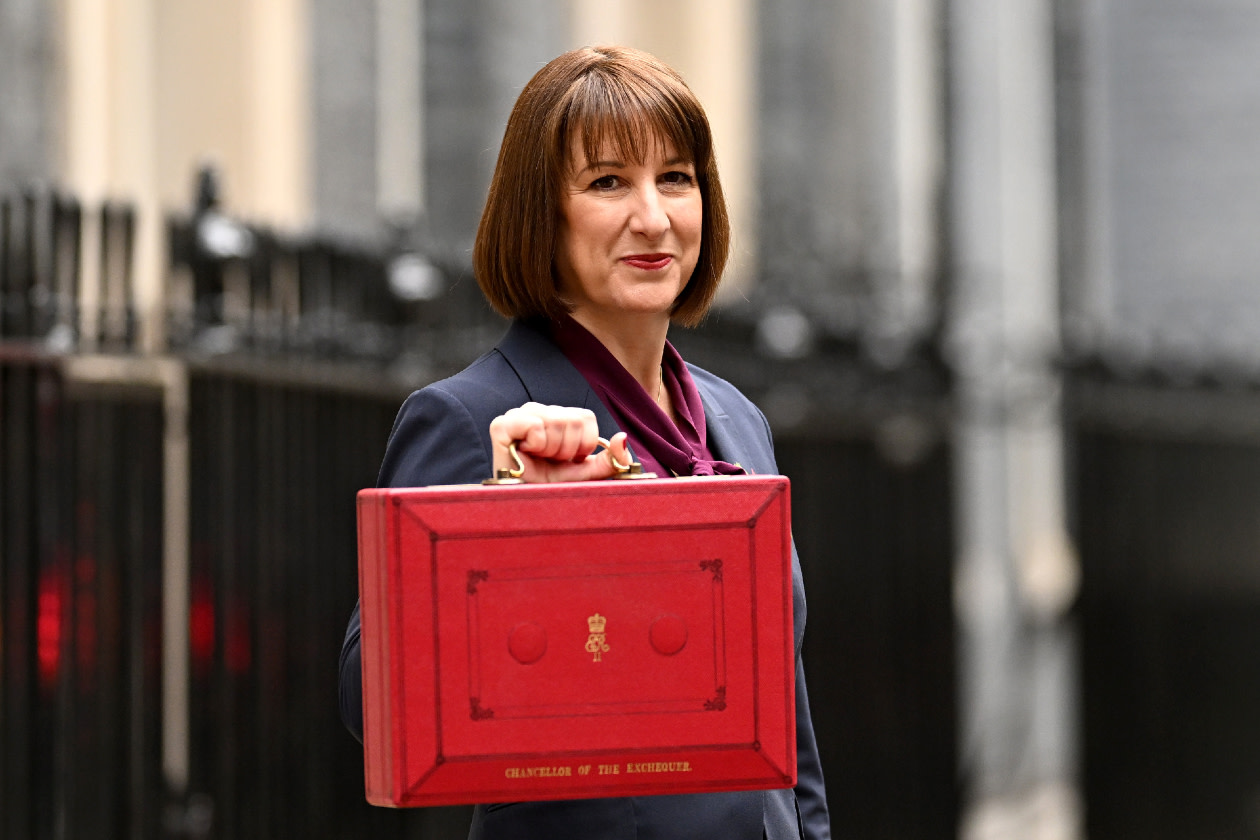Chancellor of the Exchequer Rachel Reeves has delivered the 2024 Autumn Budget – Labour’s first since winning the General Election back in July.
From a £40bn increase in taxes to £100bn in capital spending over the next five years, Reeves laid out the government’s plans to ‘fix the foundations’ and ‘invest, invest, invest’ to drive economic growth.
The immediate UK stock market reaction was mixed.
The more domestic side of the market rallied thanks to improving sentiment for housebuilders. Pound sterling gained slightly against the dollar, while government bond yields fell – normally a positive sign.
Here are some of the main takeaways from the 2024 Autumn Budget and what it could mean for you and your money.
Our advisers can adjust your financial plan post-Budget. Understand how inheritance tax on pensions and rising capital gains tax could impact you.
This article isn’t personal advice and is based on our understanding of the Budget. Unlike cash, investments can fall as well as rise in value, so you could get back less than you invest.
ISA, pension, and tax rules can also change, and any benefits depend on your circumstances. Tax rates and bands are different for Scottish taxpayers. If you're not sure what's right for you, ask for financial advice.
Income tax – no additional freeze
Rachel Reeves has quashed one of the biggest fears people had about the Budget, by announcing there will be no additional freeze in the income tax thresholds.
It means from 2028/29 they’ll be uprated with inflation. It will bring an end to the rapid escalation of people paying more tax at higher rates.
In 2024/25 there are an estimated 37.4 million income taxpayers, up 4.4 million from when thresholds were frozen in 2021/22. There are 2.1 more basic-rate taxpayers, 1.88 million more higher-rate taxpayers and 610,000 more additional-rate taxpayers – more than double the number before the freeze.
There are also around 8.5m taxpayers over State Pension age – around a quarter more than before thresholds were frozen.
It means we’re parting with even more of our hard-earned cash.
In this tax year so far, we’ve paid £211.9bn in income tax and National Insurance – up £5.7bn in a year. Thanks to this freeze, the pain will be spread further and cut deeper. It could mean we pay £7bn more a year in income tax.
Capital gains tax rise – what does it mean for you?
As part of Rachel Reeves’ £40bn increase in taxes, the chancellor confirmed an immediate capital gains tax (CGT) hike.
Reeves confirmed that the lower rate of CGT will rise from 10% to 18% and the higher rate from 20% to 24%.
That means you could now pay more CGT on any profits from selling assets, including shares.
However, you’ll still have your CGT allowance which you can take advantage of.
What can you do about the rise in CGT?
You get an annual £3,000 CGT allowance on a use-it-or-lose it basis.
If you’re building up a big gain, you might be able to realise it gradually, over a period of years. You won’t pay CGT so long as you stay within your £3,000 CGT allowance each tax year.
One way you can cope with a potentially higher CGT bill is to use any losses.
When you complete your tax return, you can add details of the losses you’ve made, which will be offset against the gains when you’re calculating how much CGT you owe.
If you make more losses than gains, you should still make a claim for the extra losses, and if you still can, carry them forward into next year.
If you’re married or in a civil partnership, you can also transfer the ownership of some investments to your spouse or civil partner.
There’s no CGT to pay on the transfer. When they sell up, there might be tax to pay, but they have a CGT allowance of their own to take advantage of.
And when it comes to income tax, if your spouse or civil partner pays a lower rate, you can consider moving income-producing investments into their name, so the income will be taxed as theirs rather than yours.
To help save on CGT in the future, you could consider moving any investments outside of a tax-efficient account into a Stocks and Shares ISA, if you have the available ISA allowance, using the Share Exchange (Bed & ISA) process.
With Share Exchange you can sell your shares in your HL Fund and Share account, not forgetting about your CGT allowance, move the cash into the ISA wrapper and buy back the same shares again, all in one instruction.
You have to stick within your overall £20,000 ISA allowance though and before using Share Exchange take any charges for the deals and the new account charges into consideration.
But when your investments are in an ISA, you then won’t have to worry about UK dividend tax or CGT.
If you’re earlier in the process of building your assets, consider Stocks and Shares ISAs and pensions, like the Self-Invested Personal Pension (SIPP).
Adding money to your pension effectively can help extend your basic-rate tax band. Plus, you get tax relief from the government on what you pay in. How much you can pay in and the tax relief you get depends on your circumstances. Remember, you can't usually access money in a pension until 55 (57 from 2028).
Using tax-efficient accounts like these also mean your investments can grow without having to worry about CGT and dividend tax.
As we dive deeper into the 2024 Autumn Budget changes, there will be plenty more to come.
To make sure you don’t miss out on what all this means for you and your money, sign up to our Editor’s Choice email.
Inheritance tax and pensions – what’s changed?
Reeves agreed to extend the inheritance tax (IHT) threshold freeze for another two years to 2030 – meaning more people will now likely pay IHT in the future.
It means the first £325,000 of your estate (your property, money and possessions) still fall into the nil rate band, so you don’t pay IHT on it.
If your assets include the family home that you’re giving away to children or grandchildren, you also get up to a £175,000 residence nil rate band.
That means you can give away this property up to this value and pay no IHT on that either.
The chancellor also confirmed she will bring inherited pensions into the IHT regime from April 2027.
At the moment, pensions are usually passed on tax free if you die under the age of 75 – or taxed at the beneficiaries’ marginal rate of income tax if you die over 75 – but in most cases pensions don’t attract IHT.
Stay ahead with instant access to our latest articles, expert research, and in-depth insights — right from your mobile device.
What could this change mean?
It’s a decision that will upturn many people’s plans as we will see many more people being dragged into paying inheritance tax because their defined contribution pension is now counted as part of their estate.
It’s an issue that won’t be felt as much by those with defined benefit pensions as these cannot usually be passed on.
We’ll likely see a flurry of people revisiting their retirement finances.
The likelihood is we’ll also see people looking to gift more money to loved ones while they’re still alive – for instance money to help people get on the housing ladder.
They might also look to spend down their pensions as retirement income rather than leave them untouched, a move which could keep the rest of someone’s estate below the IHT threshold.
And we could see an increased interest in annuities as people look to secure a guaranteed income while also keeping their estate below the inheritance tax threshold.
The government’s Pension Wise service can help if you’re over 50 and need guidance. You can also get personalised financial advice if you need it.
If you think you could benefit from getting expert financial advice from a professional, start by booking a call with our advisory team today.
You won't get personal advice on the call, but they'll talk you through the advice service we offer, including charges and connect you with an adviser if you'd like to go ahead.
Our advisers can recommend how you can make the most of your tax allowances through financial planning. But if you need complex tax calculations, your adviser might recommend you speak to an accountant to complement their advice.
(Photo by Leon Neal, Getty Images)






